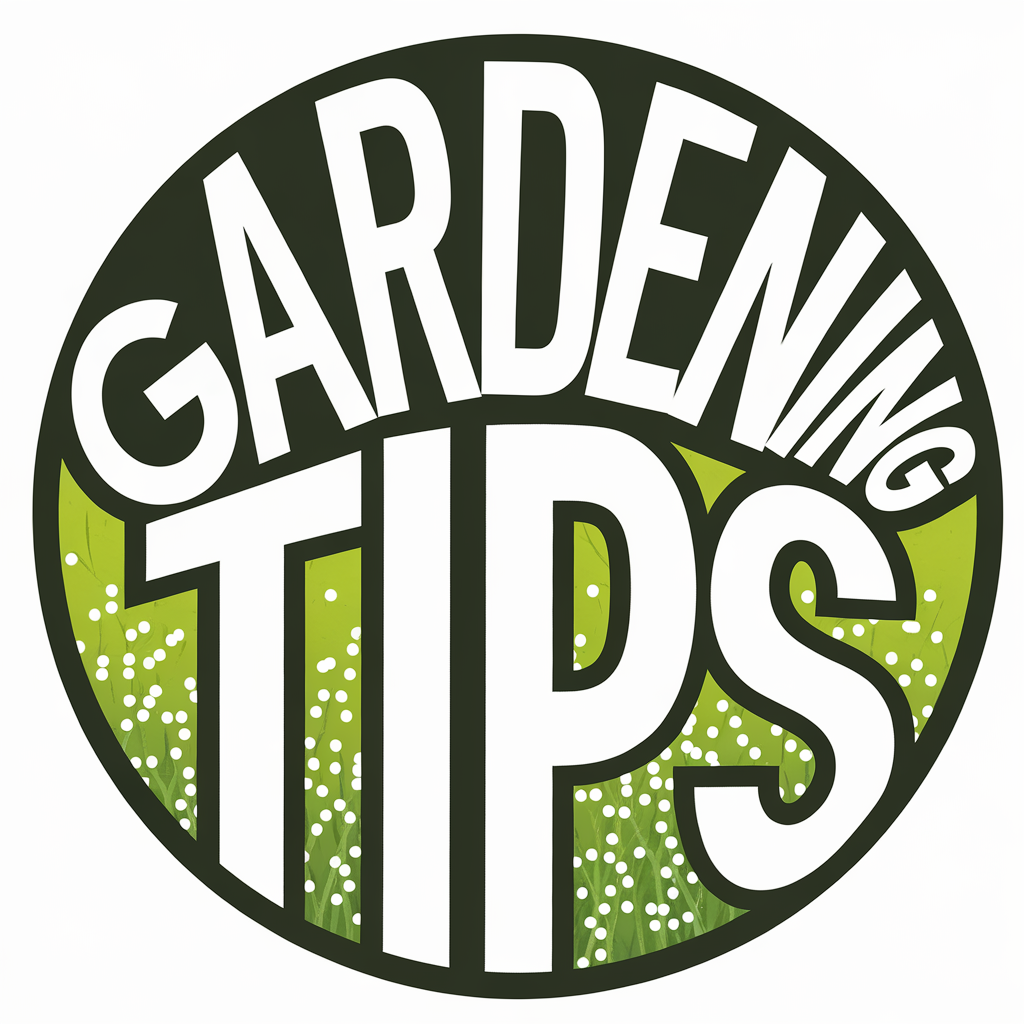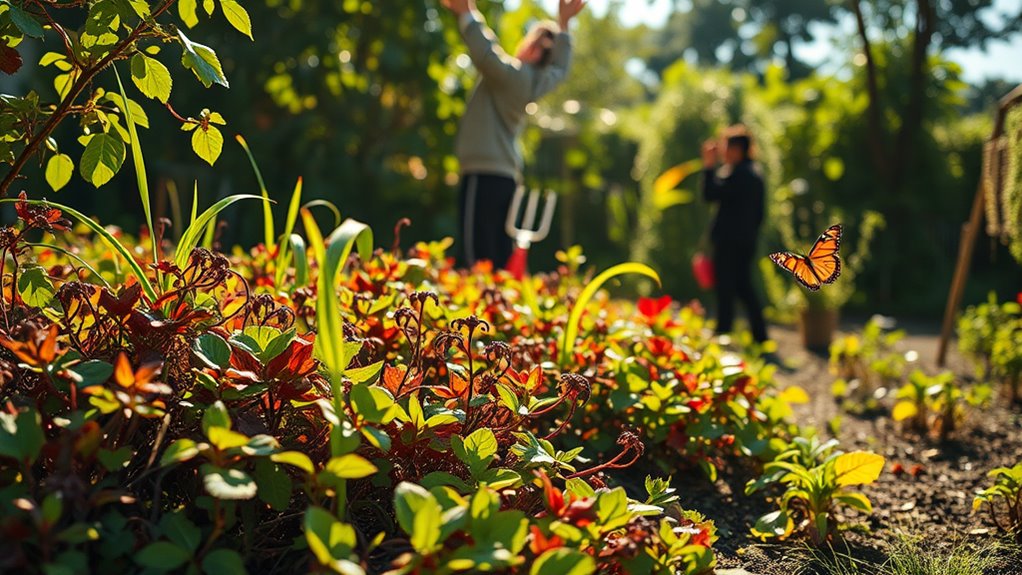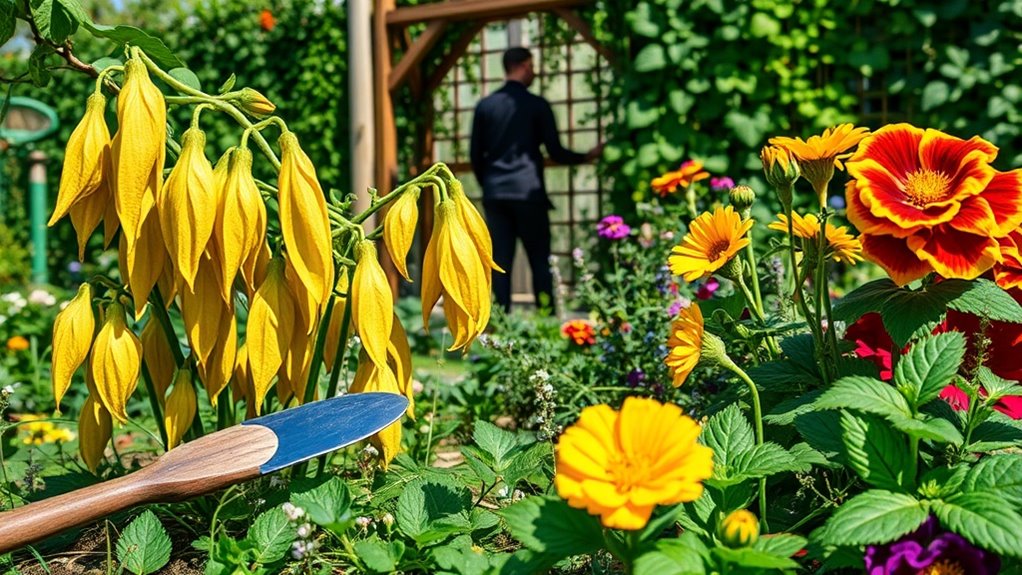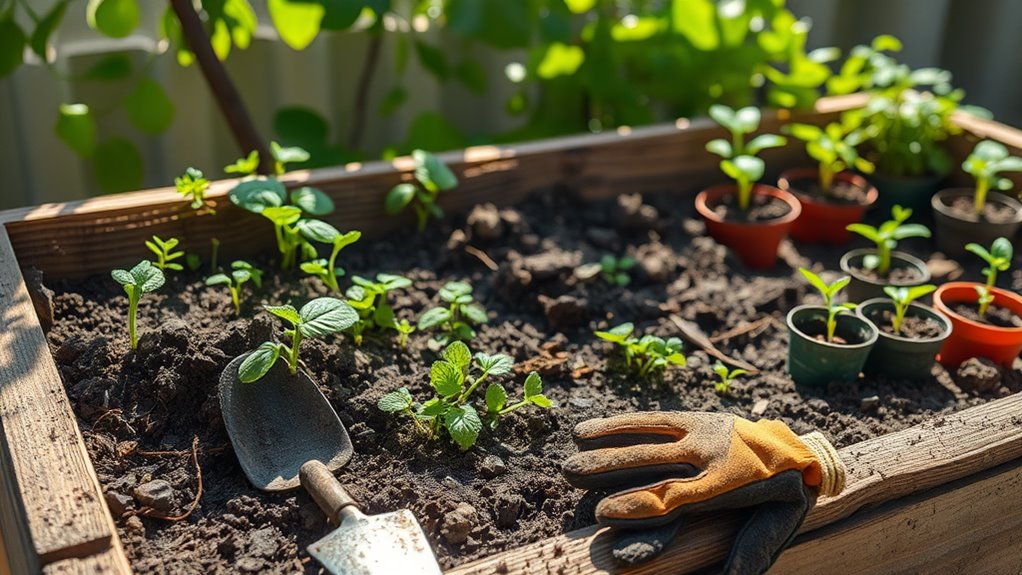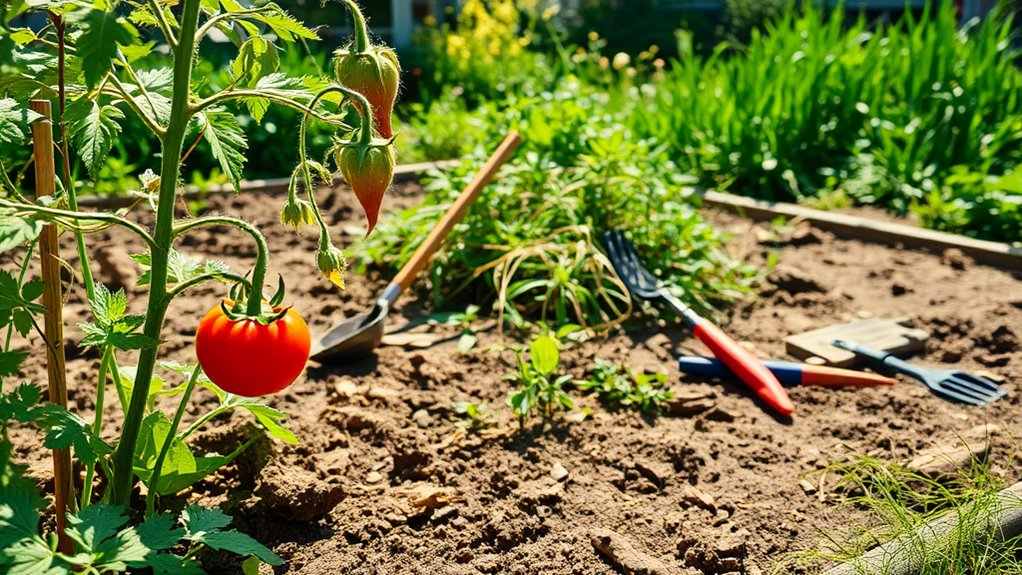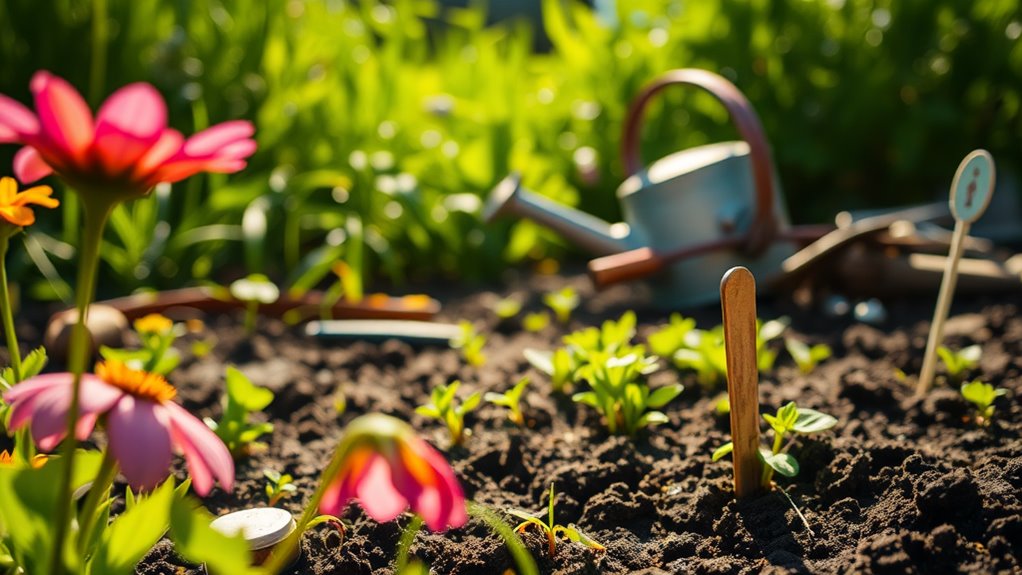These Gardening Myths Are Holding You Back!
Many gardening myths can hinder your success. You don’t need a green thumb; anyone can learn through practice. Not all plants thrive in full sunlight, and organic gardening can be simple and fulfilling. Pruning isn’t just for looks; it promotes health and vigor. Over-watering daily can harm your plants, just like misusing fertilizers. Even small spaces can yield wonderful gardens. Understanding these myths can help you thrive, and there’s more insight waiting for you!
Myth 1: You Need a Green Thumb to Garden Successfully
Have you ever thought that a “green thumb” is a prerequisite for successful gardening? Many people believe this gardening myth, but it’s simply not true.
Anyone can cultivate a thriving garden with the right knowledge and techniques. Success hinges on understanding your plants, soil conditions, and local climate rather than an innate talent. Research shows that learning through trial and error is key; you’ll improve over time. Additionally, recognizing that gardening myths can hinder your progress will empower you to make informed decisions and enhance your gardening skills.
Myth 2: All Plants Thrive in Full Sunlight
What makes a plant thrive in its environment? While many believe all plants need full sunlight, that’s far from the truth. Different species adapt to varying light conditions, and some flourish in shade. Understanding your plants’ needs is essential. Proper soil quality also plays a crucial role in ensuring they receive the nutrients necessary for optimal growth.
| Light Requirement | Examples |
|---|---|
| Full Sun | Tomatoes, Peppers |
| Partial Shade | Ferns, Hostas |
| Full Shade | Astilbes, Bleeding Hearts |
Myth 3: Organic Gardening Is Too Complicated
Many gardeners shy away from organic gardening, mistakenly believing it’s too complicated to manage effectively.
In reality, organic gardening can be straightforward and rewarding.
Here are some key points to keep in mind:
- You can start small, focusing on a few plants.
- Natural pest control methods are often simple and effective.
- Soil health can be improved with easy composting techniques.
- You don’t need expensive organic products; many household items work well.
- Resources like local gardening clubs and online forums provide support.
- Incorporating simple organic hacks can significantly enhance your plant growth and resilience.
Embracing organic gardening doesn’t have to be intimidating; it’s about working with nature, not against it.
Myth 4: Pruning Is Only for Aesthetic Purposes
Why do so many gardeners think pruning is merely for aesthetics? This misconception overlooks the essential role pruning plays in plant health.
Proper pruning encourages new growth, removes dead or diseased branches, and improves air circulation. By thinning out overcrowded areas, you can reduce disease risk and promote stronger, more resilient plants. Additionally, strategic cuts can direct energy to productive parts of the plant, enhancing fruit and flower production.
In fact, adopting the right pruning technique can significantly transform your garden and lead to healthier, more abundant plants. So, while a tidy appearance is a bonus, the real benefits of pruning lie in fostering healthier, more vigorous plants.
Embrace pruning as an essential part of your gardening routine.
Myth 5: You Should Water Your Plants Every Day
You shouldn’t water your plants every day without checking their soil moisture first. Water needs can vary greatly based on factors like plant type, weather, and soil conditions. Overwatering can lead to signs of overwatering such as yellowing leaves and root rot, which can severely impact your plants’ health.
Water Needs Vary Daily
How often should you really water your plants?
The truth is, their water needs vary daily based on several factors.
Instead of watering on a strict schedule, observe your plants and adjust accordingly.
- Temperature affects evaporation rates.
- Humidity levels influence moisture retention.
- Soil type determines drainage and absorption.
- Plant species have different hydration requirements.
- Seasonal changes alter water needs.
Check Soil Moisture First
Many gardeners fall into the trap of watering their plants every day, believing it’s the best way to guarantee healthy growth. However, overwatering can lead to root rot and other issues.
Instead, you should check soil moisture first.
Use a finger or a moisture meter to assess whether the soil feels dry an inch below the surface.
Different plants have varying water needs, so tailoring your approach is essential.
Myth 6: Composting Is Only for Experienced Gardeners
Is it true that composting is reserved for seasoned gardeners with years of experience? Absolutely not!
Composting is an accessible practice for everyone, regardless of skill level.
You can start small and build your knowledge over time.
Here’s why you shouldn’t hesitate:
- It reduces kitchen waste effectively.
- Compost enriches soil, improving plant health.
- You can create compost with everyday items.
- It’s a sustainable choice that supports eco-friendly gardening.
- Learning to compost enhances your gardening skills.
- You can use low-effort composting methods that make the process even simpler for busy beginners.
Myth 7: Fertilizers Are Harmful to Plants
While composting contributes greatly to soil health, some gardeners worry that fertilizers might be detrimental to their plants.
In reality, fertilizers provide essential nutrients that help plants thrive.
When used correctly, they can enhance growth and improve yields.
The key is balance; over-fertilization can lead to nutrient burn or imbalances, harming your plants.
Always choose the right type of fertilizer for your specific plants and follow application guidelines.
Remember, healthy soil often means healthier plants. Additionally, using organic fertilizers can be a great way to ensure your plants receive the nutrients they need without the risk of harmful chemicals.
Myth 8: You Can’t Grow Plants in Small Spaces
Wondering if you can really grow plants in small spaces?
You absolutely can!
With the right techniques, even the tiniest balconies or windowsills can flourish with greenery.
Here are some strategies to maximize your space:
- Vertical gardening: Use wall planters or shelves for height.
- Container gardening: Choose pots that fit your area and style.
- Dwarf or compact varieties: Opt for plants bred for small spaces.
- Succession planting: Rotate crops to maximize yields throughout the season.
- Herb gardens: Grow herbs in small pots for culinary use.
Don’t let space constraints stop you from enjoying a vibrant garden!
